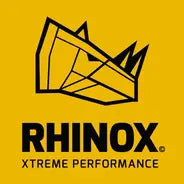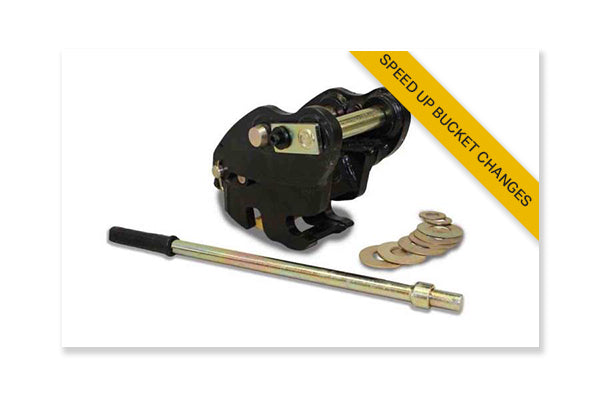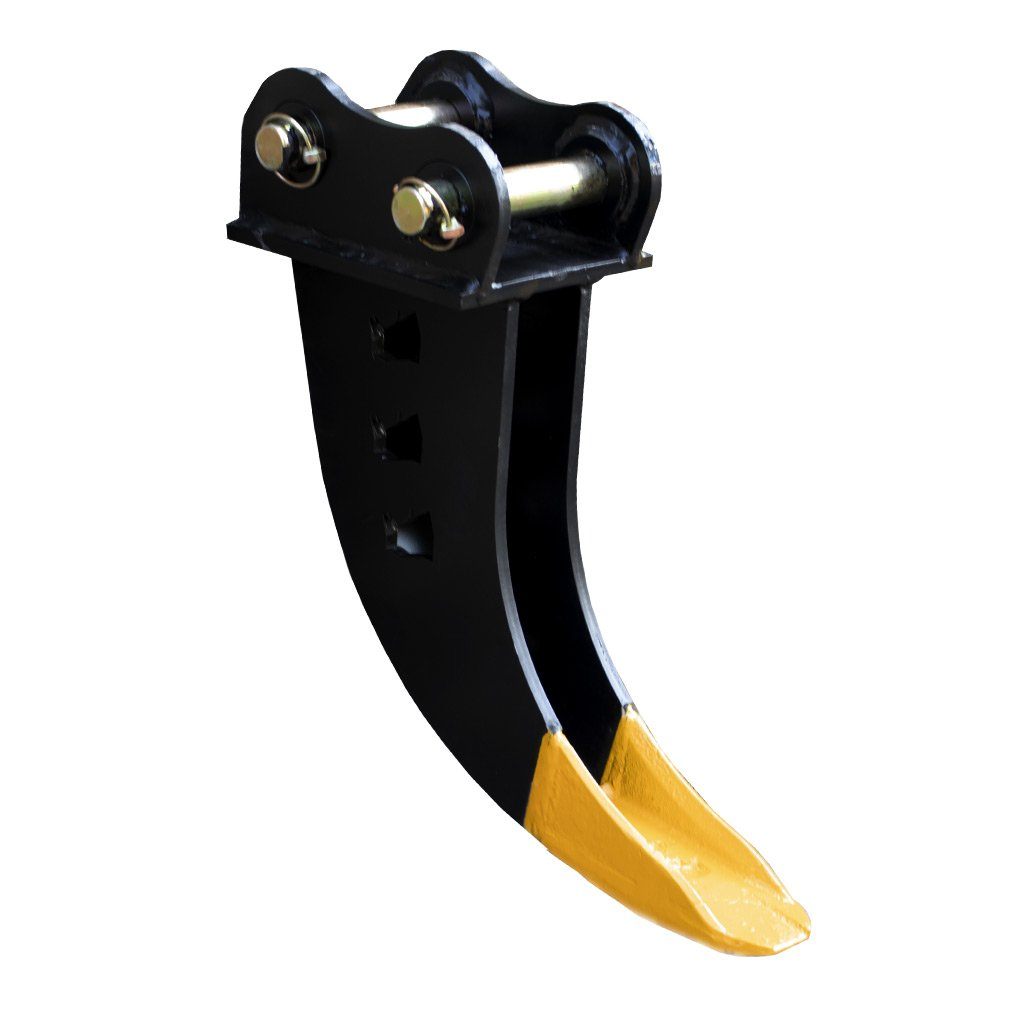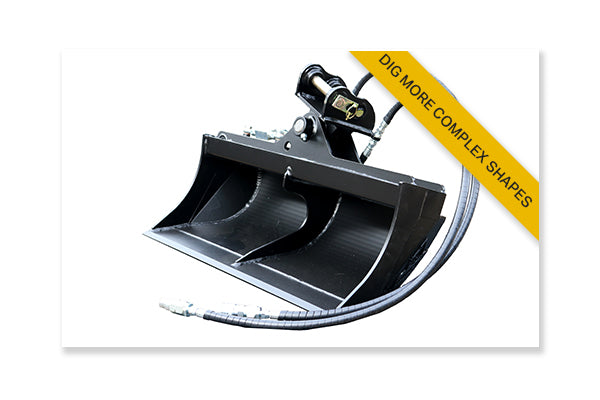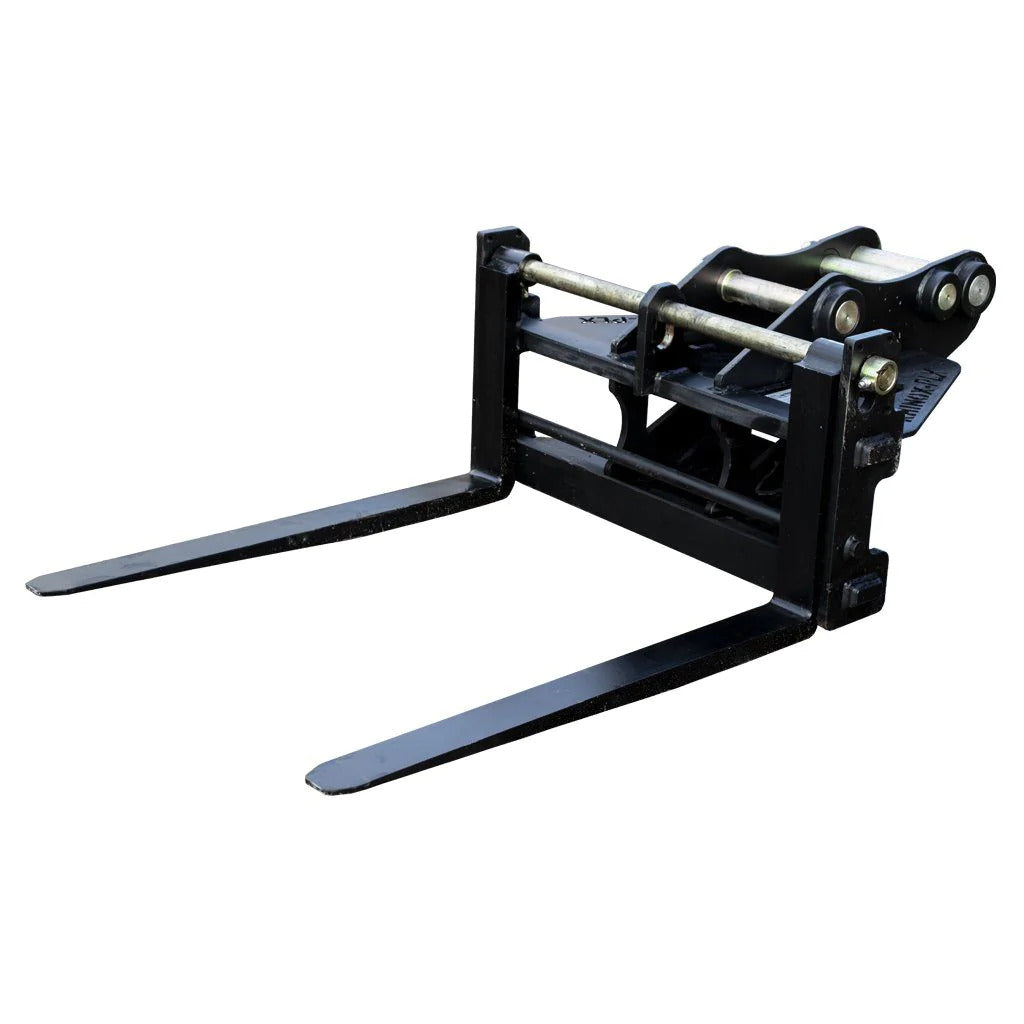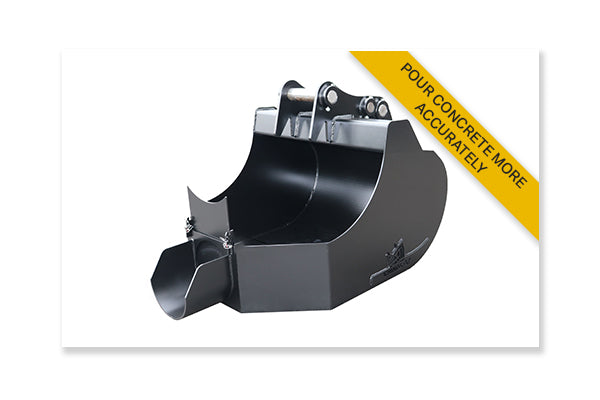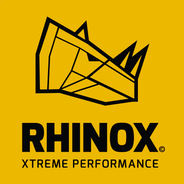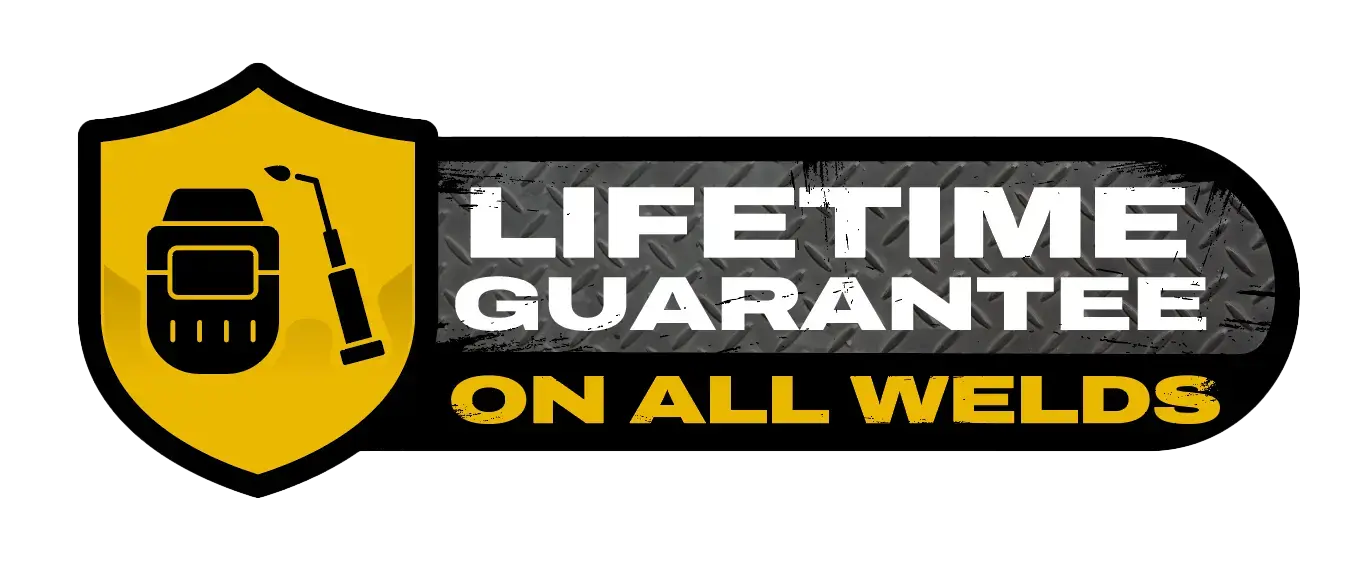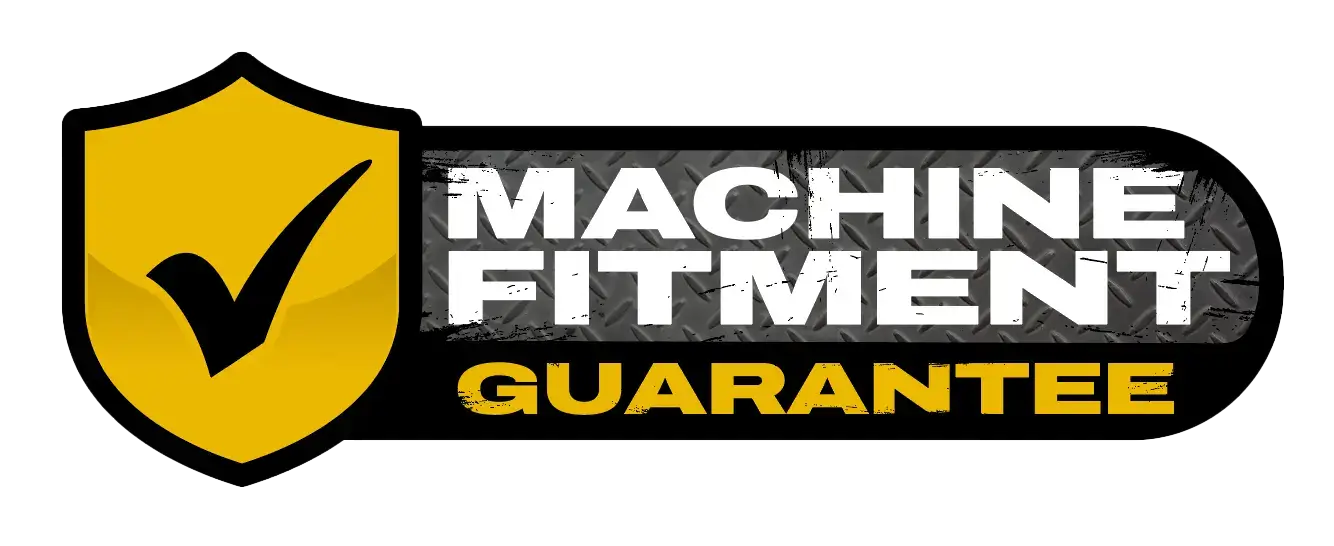
What is a Rhinox Uni-tusk / Utility Bucket?

If you’ve ever wondered, “what is a Rhinox Uni-tusk?”, here’s the answer: it’s a specialised, heavy-duty, bolt-on blade designed for digging near utilities while providing extreme wear protection. The Uni-tusk blade is recommended for situations where standard bolt-on blades would wear quickly or risk cable damage.
The Uni-tusk has curved edges and raised sides to seamlessly fit over the edge of your bucket and bolt through the lower side plates. This design helps prevent hidden cable penetration while also absorbing the brunt of ground contact and wear. When securely bolted to a standard Rhinox digging bucket, the Uni-tusk significantly reduces wear and abrasion, extending your bucket’s life by 4 to 6 times compared to bucket teeth or bolt-on blades.
Rhinox Uni-tusk blades are made from hardened 550HB (Hardened Brinell) cast steel for maximum durability. The solid steel build and curved shape withstands extreme wear, and because it’s bolted on, it can be easily removed and replaced when worn - making it a cost-effective choice for heavy-duty digging.
Why was the Rhinox Uni-tusk developed?
Every year, an estimated 60,000 underground utility strikes occur when excavator buckets hit buried cables and pipework. For utility contractors, working around live services presents a serious risk to equipment, operators, and surrounding workers. To reduce this danger, many contractors now insist on using toothless buckets in sensitive areas. However, standard toothless designs don’t always offer the durability needed for demanding excavation work. That’s where the Rhinox Uni-tusk was developed as a purpose-built solution.

Unlike traditional toothed buckets, the Uni-tusk blade features deliberately rounded edges with no sharp points or corners that could catch or pierce underground utilities. Instead of penetrating cables, the curved blade profile is designed to deflect or skim over them - significantly reducing the risk of damage during excavation. Beyond improving on-site safety, the Rhinox Uni-tusk also dramatically increases your bucket’s lifespan, combining durability with utility protection in one bolt-on blade.
In recognition of its impact on site safety, the Rhinox Uni-tusk blade was awarded the Plantworx Safety Innovation Award in 2017, highlighting its contribution to safer excavation practices across the industry.
Important Safety Notice - While the Uni-Tusk helps reduce the risk of utility strikes, it does not eliminate it. We strongly recommend always checking for underground services before breaking ground. Carry out a CAT scan to identify live cables and take care to locate any water lines, gas pipes, or other buried services that must be avoided. Safe digging always starts with proper preparation.
Key Features of the Rhinox Uni-Tusk Blade

Cast Steel Construction - Heat Treated to HB500
The Uni-tusk is cast from high-grade steel and heat treated to HB500 (Hardened Brinell) hardness. Because it is cast rather than fabricated from steel plates, hardening additives can be incorporated during the manufacturing process. The steel is then heat treated to further increase the hardness, giving the blade exceptional strength and wear resistance. This combination of casting and heat treatment creates a blade that is substantially tougher and more wear-resistant than conventional bolt-on cutting edges, meaning your bucket can last up to 4 to 6 times longer.
Curved Blade Profile
The distinctive curved edge of the Uni-tusk blade isn’t just a design feature - it’s a carefully engineered solution for working safely around underground utilities. Unlike traditional bucket teeth or sharp-edged blades, the Uni-tusk’s rounded profile is designed to deflect cables and other buried services, rather than cut or penetrate them. This means that when you’re digging, the risk of accidentally damaging a hidden utility is significantly reduced.

Full Lip & Side Plate Protection
Unlike a standard bolt-on blade, which is typically just a flat hardened plate fixed to the underside of the lip plate, the Uni-tusk is a much larger and more substantial casting. It slides over the end of the bucket, covering the lip plate to protect the leading edge, and extending up the lower side plates. By casting the blade around the side plates and bolting through both the lip plate and side plates, the Uni-tusk adds protection to another critical high-wear contact point. We deliberately designed it to extend up the side plates so that it performs in a similar way to a side cutter bucket tooth. If side plates wear faster than the rest of the bucket, you'll wear into the essential welds that hold the bucket shell, side plates and lip plate together. This can affect balance and make the bucket unstable or unpredictable. The Uni-tusk helps prevent premature wear in these areas, reinforcing the structure of the bucket as a whole.
Secure, Simple Bolt-On Design
The Rhinox Uni-tusk is designed as a bolt-on system - fastening securely through both the lip plate and the side plates of the bucket. This ensures the blade stays firmly in place even under heavy impact and demanding excavation conditions. Thanks to its simple bolt-on design, the Uni-tusk can be easily removed and replaced, keeping maintenance quick and downtime to a minimum.
Size Range & Availability
The Uni-tusk is available to fit Rhinox digging buckets for 1.5 to 7 ton excavators, in widths of 9", 12" or 18". You can choose a Uni-tusk pre-installed on a new Rhinox bucket, or order it as a standalone blade to retrofit yourself. Live stock availability for all Uni-tusk options can be checked directly on our website, where you can also purchase online for immediate dispatch. If you prefer, you can still get in contact to place your order via our team.
Will the Rhinox Uni-tusk Blade fit my Excavator Bucket?

The Rhinox Uni-tusk / Utility Bucket Blade is made to meet the specifications of Rhinox Buckets. The blade is designed to enclose the lip plate AND the leading edge of a bucket. This means that the blade slides over the end of your bucket and is secured in place with bolts through the holes in your lip plate and leading edge. The internal widths of the Uni-tusk blade are made to suit the widths of a Rhinox bucket leading edge and lip plate - these are not universal for all excavator bucket manufacturers! Manufacturers will use different widths and grades of steel to make their products, this means that the measurements of other manufacturers will differ to the measurements that will fit the Rhinox Uni-tusk.
The Uni-tusk blade is secured to the bucket using the drilled holes in the lip plate and the leading edge of the bucket. Similarly to the widths and steel grade of the bucket, the drilled holes can vary in placement depending on the manufacturer of the bucket. This means that the holes on your bucket's lip plate and leading edge may not line up with the holes on the Uni-tusk. This means that the Uni-tusk would be unable to fit or be secured to your bucket as the pin holes would be out of alignment so the bolts wouldn't go through.
